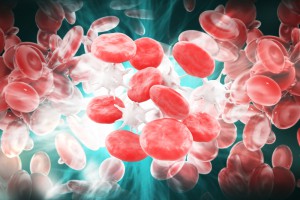
With its many diverse functions, blood can be thought of as a body organ, much in the way we think of the liver or stomach. Blood is a complex mixture of cells and chemicals, and performs dozens of functions which keep our metabolism in balance. Three types of blood cells are red cells, which transport oxygen and carbon dioxide, platelets, which help blood to clot, and white cells, an important part of our immune system. White cells exist in blood, but are also found in lymphatic channels, lymph glands, and other body organs.
White blood cells are essential for our immune system. Without our immune system, we would quickly perish from infection. Five varieties of white blood cells are neutrophils, lymphocytes, monocytes, eosinophils, and basophils. Each plays a distinct but important role in fighting infections.
Neutrophils use their tentacles to crawl throughout the body and seek out and destroy bacteria. The neutrophils smell the chemicals secreted by the bacteria- they can then home-in, engulph, swallow, and digest the bacteria. Lymphocytes play an entirely different role- lymphocyte B-cells become stimulated to produce a substance called antibody, which circulates through the body and coats invading germs. This triggers a death spiral, as other parts of the immune system then rally around and join in for the kill. Lymphocyte T-cells work differently- they seek out our own cells, which have become contaminated with a virus. The T-lymphocytes then cosy-up to the infected cells, grab them, and inject substances that kill the cell. This killing of our own cells puts an end to the spread of the virus. The other types of white blood cells- monocytes, eosinophils, and basophils, also play an important role fighting disease. Eosinophils and basophils are also involved in allergic reactions.
A routine blood test called complete blood count can reveal abnormalities in white blood cells. Patients with elevated or suppressed white blood cells may be referred to a hematologist, or blood specialist, for further evaluation. Suppressed white cells are a condition known as leukopenia. In severe cases of leukopenia, the body may become susceptible to infections. Causes of leukopenia include genetic conditions, HIV, leukemia, medications, and other causes. Elevated white blood cells are a condition called leukocytosis, which can may be caused by infection, bone marrow disorders, leukemia, medication, and other causes.
Rare genetic conditions can result in non-functioning white blood cells, which can cause life-threatening infections in afflicted children. Bone marrow transplant and gene therapy can now cure some of these serious genetic conditions. Examples include adenosine deaminase deficiency and severe-combined immunodeficiency.

